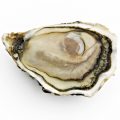 Organic synthesisPhoto:ShutterstockA Tokyo company that services the sewer system in Japan's capital has asked scientists to come up with a useful use for the huge amounts of sewage accumulating in the city's depths. The most original idea was proposed by Dr. Mitsuyuki Ikeda, a laboratory employee from Okayama Prefecture on Honshu Island. The scientist analyzed the sludge accumulating in the sewers and discovered a large number of bacteria in it that convert human waste into proteins. He isolated these proteins, selected a catalyst for them, and obtained artificial meat. The shitburger contains 63% proteins, 25% carbohydrates, a small amount of fat and minerals. To make the product more attractive, a dye and flavor enhancer are added to the sewer meat. The idea of turning human excrement into food is not new. Humanity has long learned to obtain drinking water from urine. For example, such installations quite successfully serve astronauts on the ISS. It is noteworthy that the use of human waste found by the Japanese solves not only the sewer problem, but can also become a way to solve the food problem and even the problem of the greenhouse effect. Currently, 18% of emissions that create the greenhouse effect are accounted for by the meat industry. In addition, livestock farming consumes too many valuable resources. But the invention also has one significant drawback: it is unknown how many volunteers will agree to consume meat synthesized from excrement. In addition, in terms of production costs, sublimated meat from waste is not inferior to natural meat. This gives hope that we will not soon find a replacement for the usual cutlets with a Japanese invention. On the other hand, perhaps for many this will become a reason to give up meat altogether and become a vegetarian.
Organic synthesisPhoto:ShutterstockA Tokyo company that services the sewer system in Japan's capital has asked scientists to come up with a useful use for the huge amounts of sewage accumulating in the city's depths. The most original idea was proposed by Dr. Mitsuyuki Ikeda, a laboratory employee from Okayama Prefecture on Honshu Island. The scientist analyzed the sludge accumulating in the sewers and discovered a large number of bacteria in it that convert human waste into proteins. He isolated these proteins, selected a catalyst for them, and obtained artificial meat. The shitburger contains 63% proteins, 25% carbohydrates, a small amount of fat and minerals. To make the product more attractive, a dye and flavor enhancer are added to the sewer meat. The idea of turning human excrement into food is not new. Humanity has long learned to obtain drinking water from urine. For example, such installations quite successfully serve astronauts on the ISS. It is noteworthy that the use of human waste found by the Japanese solves not only the sewer problem, but can also become a way to solve the food problem and even the problem of the greenhouse effect. Currently, 18% of emissions that create the greenhouse effect are accounted for by the meat industry. In addition, livestock farming consumes too many valuable resources. But the invention also has one significant drawback: it is unknown how many volunteers will agree to consume meat synthesized from excrement. In addition, in terms of production costs, sublimated meat from waste is not inferior to natural meat. This gives hope that we will not soon find a replacement for the usual cutlets with a Japanese invention. On the other hand, perhaps for many this will become a reason to give up meat altogether and become a vegetarian.

Making Money with Desserts: Success Stories
Evgeniya Polischuk (Fedutinova) instagram:@evgeniyafedutinovavk.com/janeshomebaking– It all started with baking for family and friends. Gradually, I started posting photos of my baked goods on Instagram – and orders started coming in. I made my first custom-made cake on October 13, 2014, and a little earlier I started making macaroons and cupcakes. You could say that the business “found me”, I am very […]

Soups are cold recipes with photos
Cold cucumber soup with yogurt and lemonsorbet from the chef of the restaurant La Taverna Alexander Zhurkin Photo: Getty Images Ingredients: Plain yoghurt – 125 g Cucumber – 150 g Lemon/lime sorbet – 50 g Cocktail shrimp – 24 g Fresh ginger juice – 1 g Lime juice – 5 g Fresh orange juice – 5 g Parsley – 1 g Pink pepper – 1 g Watercress – […]

barbeque kebab
Pork tenderloin in glaze Photo:Dmitry Bayrak/dbstudioPreparation time: 20 minutes + marinating time.Calories: 454 kcal per serving.For 4 servings: 4 pork tenderloins (approximately 300 g each), 1 onion, 2 cloves of garlic, 1 tsp. lemon zest, 1 tsp. lemon juice, a pinch of ground cumin, coriander and turmeric, 1 tbsp. vegetable […]

Pierre Duacan: dietary recipes: Ducane diet
Beetroot soup Photo:Season’S, Luxury Hotels RepresentationYou will need:· Boiled beetroot – 60 g· Fresh cucumbers – 20 g· Red radish – 20 g· Green onions – 10 g· Egg – 1 pc.· Drinking mineral water – 200 g· Salt – 1 gPreparation:· Boil the egg and beetroot.· Grate the cucumbers, radish and part of the beetroot. Put everything […]





